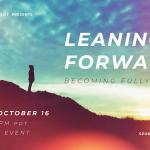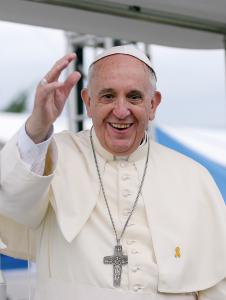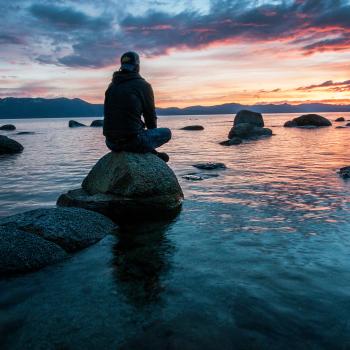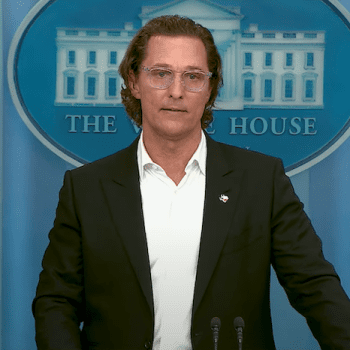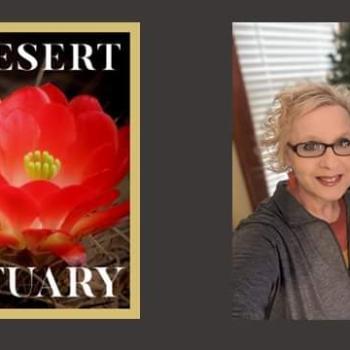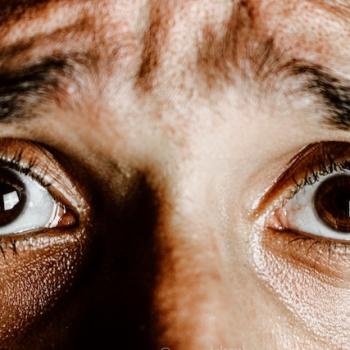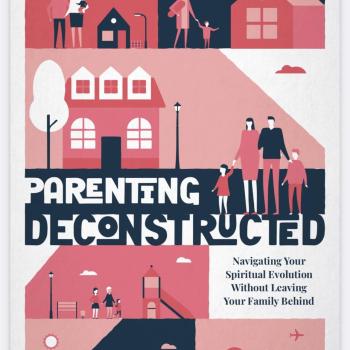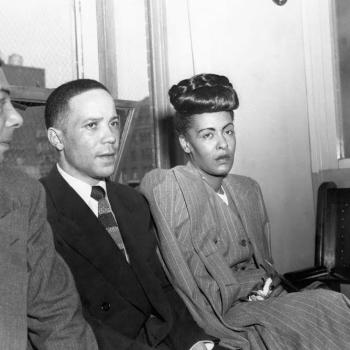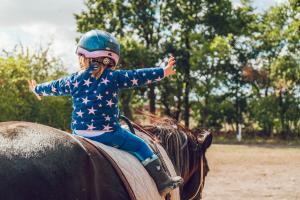 Yesterday, I talked about how I started to evolve out of fear-based parenting. Usually my bad decisions were rooted in fear. If you haven’t read it yet, go back and read it now – part 1. But, through all our struggles we managed to discover a few things that we did right.
Yesterday, I talked about how I started to evolve out of fear-based parenting. Usually my bad decisions were rooted in fear. If you haven’t read it yet, go back and read it now – part 1. But, through all our struggles we managed to discover a few things that we did right.
Learning to be Brave
My dad never learned to swim. My grandpa is a person I am connected with spiritually in some strange metaphysical way. I can literally feel him sometimes. But I remember a time when he was teasing my dad about never learning to swim and about being lazy. It had a deep resining impact on me. Not because it was Good Parenting 101, but because of the opposite of what I described above—I didn’t want to be afraid of anything.
As I described above, I often succumbed to my fears, especially when people that I admired told me I should be afraid. But, after listening to my grandpa and my father, I determined that I never wanted to regret missing an opportunity simply because I was afraid. I made 11 skydiving jumps, I took Karate, and I did things like writing books. I had a crippling fear of speaking in public and I overcame it to be an effective speaker and preacher. I traveled oversees and changed careers several times, because I didn’t want to regret what I was afraid to experience. It would be okay if I didn’t succeed, but it wouldn’t be okay if I didn’t try.
I was determined to instill this type of bravery in my children. I wanted them to learn confidence to answer the phone and speak in public and make their own decisions. So, when our oldest daughter (Abbey) was young, I started whispering in her ear to “be brave.” 20 years later, I saw a social media post that expressed something like, “I don’t need a man to slay the dragon—I am the dragon.” She has certainly been courageous to achieve the goals she set out to accomplish and she is thriving as an RN in the Kansas City area.
Every once in a while, I overheard my children talking. Sometimes it was disturbing and other times it was life-giving. The later occurred when I heard Abbey whispering to her sister to “be brave.” You can’t imagine how inspiring and uplifting that was! It was one of the greatest moments in my life and now I get to witness her teaching bravery to her two daughter and her husband.
Children are sometime reckless by nature, but bravery has to be modeled and taught. Amidst the sea of machoism, crowd-following, and foolish behavior can be genuine, character-building bravery. It is authentic and honest and inspiring. I challenge you to experience true bravery in your journey and to share that challenge with those who look up to you.
Finding our Voice
My parents told me stories of how I would hide under the coffee table when people came over. I played sports and participated in most activities, but I always found a way not to talk. When I went to college, I had to take speech. I was doing okay in the class, and I think it interested me because it was a new adventure. But I almost flunked the class because I left off over half of a 15 minute speech—I just forgot it!
Early in my career, a manager called me into her office and informed me of an issue she had with my performance. To make a long story short, she told me I was a good worker, but I needed to learn how to speak better or “it just isn’t going to work out.”
She referred me to a group that met on that campus, and I started attending reluctantly after work. It was a little club for people like me. We mostly did extemporaneous speaking which felt like torture. When it was your turn, someone would hand you a topic and you would have to speak for a minute or two. It felt like an eternity, and I literally almost vomited a few times. The experience challenged me and caused me to get better. Later, I would join a Toastmasters group while working for another employer. I won a couple of awards and later became president of that group.
I thought I had pretty much conquered my fear until I had to teach from the Bible for the first time. I was being licensed for ministry and my pastor let me teach a lecture at our church and again, I felt like I was going to be sick. It got easier over time, until I preached my first sermon. With each new challenge came a new level of pain and adjustment and ultimately, mastery (or as close as I could come to it).
So, one day when Laura and I started writing about “Finding our Voice,” I assumed that I had found my voice already. Especially since I was a pastor and got to say what I thought every Sunday. As I reflected on this after leaving the pastorate, I realized I did not really authentically have a voice because I always had to answer to the board, or the deacons, or the congregation. I subconsciously knew that I could only go so far with challenging long-held beliefs. No mater how smart, talented, or insightful I might be, the people wanted their pastor to talk about what they expected him to talk about.
After deconstructing and leaving the pulpit, I began to understand finding my voice and reflected on how I shared that with my children. I remember a painful conversation with my son, Jordan, when I needed him to tell me about something that happened to him at college. It was like he was experiencing the kind of difficulty I experienced all those years trying to learn to communicate.
What was it that had to happen in those speeches and conversations? We had to be vulnerable—it’s so important. I didn’t know what he was going to say (I might not like it) and he didn’t know how I would receive it. Being vulnerable is important now in my writing, my healing, and all aspects of my journey. But I also had to teach it to my children. I think it has something to do with being seen with eyes of grace. When we “spill the beans” and we don’t die, it heals the shame and creates a new confidence in us.
We are so vulnerable with our children since we have deconstructed, so much less judgement.
But finding our voice also births in us a deeper root into authenticity. We can now speak to each other as ourselves without playing a role. Because we now realize how much every person needs their autonomy, we don’t play roles or put expectations on them. We are learning to be who we are.
To be honest, figuring out who we are is difficult after deconstruction. So much of what we identified with before was what we did and what was expected of us. Now that a lot of that is stripped away, we have to ask questions like, “What do we really like to do, what do we really care about, and what is our truth that needs telling?” The great thing we can now do is ask those questions honestly to our grown children and for the first time, not have any expectations.
Knowing who we are and finding out who our children are authentically may be one of the greatest gifts to give a member of the family.
Learning to think for ourselves
I always said that I wanted them to find their own faith, even when I was deep into ministry. But what I really wanted was for them to find my faith. Eventually, they were all baptized into the faith that I was participating in. What I didn’t see was, at the same time, I was teaching them to think for themselves. I remember seeing an essay Jordan wrote at college about legalization of marijuana and realized he truly was thinking for himself.
All of our kids moved away from our home, went to college and established lives for themselves. They all have their own life, their own beliefs, and their own political views. I am so thankful we fostered this passion in them to find out how they feel about various things in life. There were times when it worried me, but now it is the greatest gift we could have given them.
I remember when we told the girls that we were deconstructing. They just kind of acknowledged that they had been waiting for us to evolve. They were accepting and gracious to us for our past and the way we raised them. They seemed to have taken the good things from our experience and found the best of all their experiences. None of us are in exactly the same place on any issue, but we are all thinking for ourselves and accepting of each other.
Controlling our children into believing like us almost never works out. Our energy is much better spent fostering mercy, love, forgiveness, and compassion for others. It’s better to give them analysis tools than to give them what we consider to be treasure.
My daughter that stood over me and told me off was at my house the other day. We sat on the porch with her son and composed some music on her guitar to one of my poems about my dog. It was a beautiful night and I realized how much I respect her. She is brave—she thinks for herself—and, she definitely has found her authentic, vulnerable voice.
But our relationship wouldn’t have been the same if I didn’t evolve through deconstruction and the work I have done in my Shadow. Some of my beliefs were toxic and I need to be brave and re-think for myself what was important to me. I have become a much more present and authentic dad and papa.
Laura and I joke that we want to be like our kids at different times in our life. It’s true. Most of the things we thought we cared about when they were young turned out to not be that important and really just desires of our ego and a fear of what others would think. The good things we are discovering now echo what our children are finding as well. We are on a brave, exciting journey that includes our children. We hardly ever agree totally, but we feel like we have to tools of discovery that will lead us all to where we should go.
The only thing we’re afraid of is going back where we came from.
Be where you are, be who you are, be at peace.
Karl Forehand



